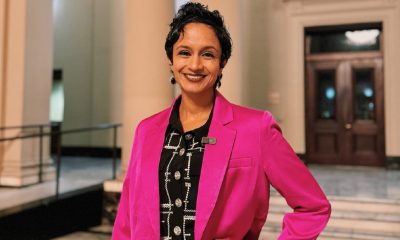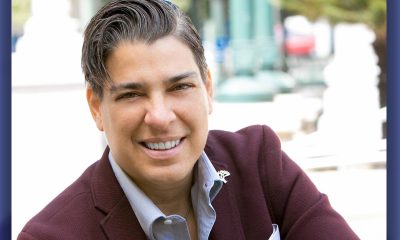#NNPA BlackPress
State Housing Finance Agencies Boost Hopes for Finding Affordable Homes, Apartments
NNPA NEWSWIRE — According to Stockton Williams, executive director of the National Council of State Housing Agencies (NCSHA), in 2017 alone, state HFAs provided $28 billion to finance affordable homeownership for more than 152,000 households, 26 percent of which were minority-headed households.
Christopher G. Cox, www.realesavvy.com, NNPA Newswire Contributor
Every state in the U.S., as well as in Puerto Rico and the U.S. Virgin Islands, has a Housing Finance Agency (HFA) that provides low- and moderate-income individuals and families with the opportunity to find a home or apartment that meets their budget and quality-of-life needs.
According to Stockton Williams, executive director of the National Council of State Housing Agencies (NCSHA), in 2017 alone, state HFAs provided $28 billion to finance affordable homeownership for more than 152,000 households, 26 percent of which were minority-headed households.
The NCSHA was created by the state agencies more than 40 years ago, Williams said, to help share best practices. “HFAs are constantly learning from each other,” Williams adds, “not only sharing best practices, but solving emerging challenges on a collaborative basis. NCSHA facilitates these exchanges and augments them with additional analysis and support.”
Some of the state HFA practices that NCSHA helps to promote are careful underwriting of borrowers, close oversight of lenders, proactive loan servicing and counseling assistance to borrowers who need it, Williams noted.
“A 2018 study,” according to Williams, “found that state HFA loans were much less likely to experience defaults or foreclosures than loans from other sources to similar borrowers.
“According to the study,” he continued, “not only are HFAs more likely to require full documentation and careful underwriting, they also serve as a third-party monitor on lenders originating loans through a state program, creating an additional incentive for careful screening by the lender.”
Like other state housing finance agencies, the North Carolina HFA (NCFHA), which began operating in 1973, serves the broad mandate of providing affordable housing opportunities for state residents whose needs are not being met by the market, explains Connie Helmlinger, manager of public relations and marketing for the NCHFA.
The work of her agency, Helmlinger notes, is divided into two main areas: providing assistance with home ownership and with rental housing.
“We have helped more than 115,000 individuals and families purchase homes,” she said. “We do that by offering mortgages with competitive rates and down payment assistance for buyers.”
The NCHFA offers a variety of assistance programs that seek to help low- and moderate-income homebuyers in such categories as first-time buyers, military veterans, senior citizens and people with disabilities. Detailed information about such programs as NC Home Advantage Mortgage, NC Home Advantage Tax Credit and NC IST Home Advantage, and how potential buyers can qualify for them, can be found at www.ncfha.com
Most of NCFHA’s work is done in association with partners, including local governments, nonprofit organizations and private developers. “One of our self-help programs,” Helmlinger says, “is working with Habitat for Humanity. They take the money we provide and roll that into their own money to provide better mortgages for people who buy their homes.”
Helmlinger notes that the NCHFA does not work directly with buyers — except for being involved in final approvals and underwriting — but works directly with lenders after buyers have contacted a loan officer about applying for one of their assistance programs.
“The money is coming from us,” says Helmlinger, “but it’s the lender that is managing the whole process.”
#NNPA BlackPress
Recently Approved Budget Plan Favors Wealthy, Slashes Aid to Low-Income Americans
BLACKPRESSUSA NEWSWIRE — The most significant benefits would flow to the highest earners while millions of low-income families face cuts
By Stacy M. Brown
BlackPressUSA.com Senior National Correspondent
The new budget framework approved by Congress may result in sweeping changes to the federal safety net and tax code. The most significant benefits would flow to the highest earners while millions of low-income families face cuts. A new analysis from Yale University’s Budget Lab shows the proposals in the House’s Fiscal Year 2025 Budget Resolution would lead to a drop in after-tax-and-transfer income for the poorest households while significantly boosting revenue for the wealthiest Americans. Last month, Congress passed its Concurrent Budget Resolution for Fiscal Year 2025 (H. Con. Res. 14), setting revenue and spending targets for the next decade. The resolution outlines $1.5 trillion in gross spending cuts and $4.5 trillion in tax reductions between FY2025 and FY2034, along with $500 billion in unspecified deficit reduction.
Congressional Committees have now been instructed to identify policy changes that align with these goals. Three of the most impactful committees—Agriculture, Energy and Commerce, and Ways and Means—have been tasked with proposing major changes. The Agriculture Committee is charged with finding $230 billion in savings, likely through changes to the Supplemental Nutrition Assistance Program (SNAP), also known as food stamps. Energy and Commerce must deliver $880 billion in savings, likely through Medicaid reductions. Meanwhile, the Ways and Means Committee must craft tax changes totaling no more than $4.5 trillion in new deficits, most likely through extending provisions of the 2017 Tax Cuts and Jobs Act. Although the resolution does not specify precise changes, reports suggest lawmakers are eyeing steep cuts to SNAP and Medicaid benefits while seeking to make permanent tax provisions that primarily benefit high-income individuals and corporations.
To examine the potential real-world impact, Yale’s Budget Lab modeled four policy changes that align with the resolution’s goals:
- A 30 percent across-the-board cut in SNAP funding.
- A 15 percent cut in Medicaid funding.
- Permanent extension of the individual and estate tax cuts from the 2017 Tax Cuts and Jobs Act.
- Permanent extension of business tax provisions including 100% bonus depreciation, expense of R&D, and relaxed limits on interest deductions.
Yale researchers determined that the combined effect of these policies would reduce the after-tax-and-transfer income of the bottom 20 percent of earners by 5 percent in the calendar year 2026. Households in the middle would see a modest 0.6 percent gain. However, the top five percent of earners would experience a 3 percent increase in their after-tax-and-transfer income.
Moreover, the analysis concluded that more than 100 percent of the net fiscal benefit from these changes would go to households in the top 20 percent of the income distribution. This happens because lower-income groups would lose more in government benefits than they would gain from any tax cuts. At the same time, high-income households would enjoy significant tax reductions with little or no loss in benefits.
“These results indicate a shift in resources away from low-income tax units toward those with higher incomes,” the Budget Lab report states. “In particular, making the TCJA provisions permanent for high earners while reducing spending on SNAP and Medicaid leads to a regressive overall effect.” The report notes that policymakers have floated a range of options to reduce SNAP and Medicaid outlays, such as lowering per-beneficiary benefits or tightening eligibility rules. While the Budget Lab did not assess each proposal individually, the modeling assumes legislation consistent with the resolution’s instructions. “The burden of deficit reduction would fall largely on those least able to bear it,” the report concluded.
#NNPA BlackPress
A Threat to Pre-emptive Pardons
BLACKPRESSUSA NEWSWIRE — it was a possibility that the preemptive pardons would not happen because of the complicated nature of that never-before-enacted process.
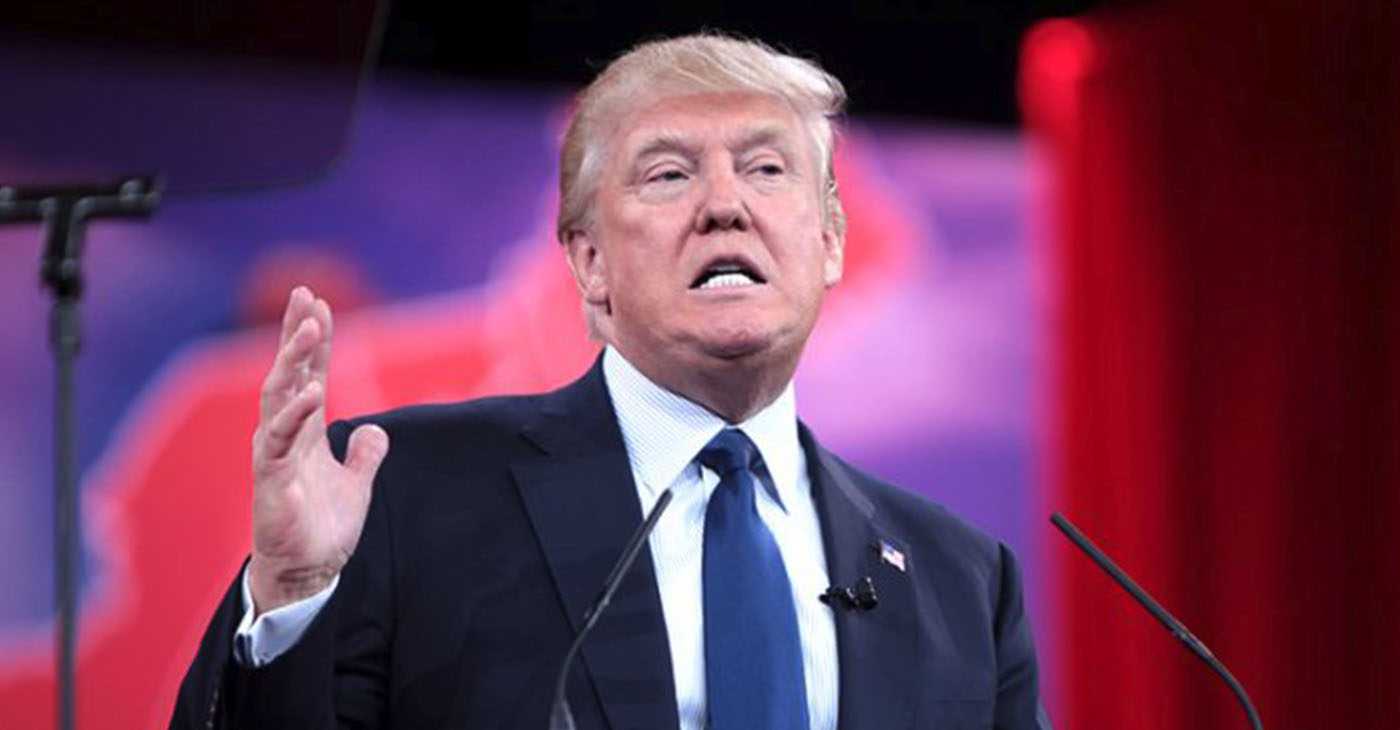
By April Ryan
President Trump is working to undo the traditional presidential pardon powers by questioning the Biden administration’s pre-emptive pardons issued just days before January 20, 2025. President Trump is seeking retribution against the January 6th House Select Committee. The Trump Justice Department has been tasked to find loopholes to overturn the pardons that could lead to legal battles for the Republican and Democratic nine-member committee. Legal scholars and those closely familiar with the pardon process worked with the Biden administration to ensure the preemptive pardons would stand against any retaliatory knocks from the incoming Trump administration. A source close to the Biden administration’s pardons said, in January 2025, “I think pardons are all valid. The power is unreviewable by the courts.”
However, today that same source had a different statement on the nuances of the new Trump pardon attack. That attack places questions about Biden’s use of an autopen for the pardons. The Trump argument is that Biden did not know who was pardoned as he did not sign the documents. Instead, the pardons were allegedly signed by an autopen. The same source close to the pardon issue said this week, “unless he [Trump] can prove Biden didn’t know what was being done in his name. All of this is in uncharted territory. “ Meanwhile, an autopen is used to make automatic or remote signatures. It has been used for decades by public figures and celebrities.
Months before the Biden pardon announcement, those in the Biden White House Counsel’s Office, staff, and the Justice Department were conferring tirelessly around the clock on who to pardon and how. The concern for the preemptive pardons was how to make them irrevocable in an unprecedented process. At one point in the lead-up to the preemptive pardon releases, it was a possibility that the preemptive pardons would not happen because of the complicated nature of that never-before-enacted process. President Trump began the threat of an investigation for the January 6th Select Committee during the Hill proceedings. Trump has threatened members with investigation or jail.
#NNPA BlackPress
Reaction to The Education EO
BLACKPRESSUSA NEWSWIRE — Meanwhile, the new Education EO jeopardizes funding for students seeking a higher education. Duncan states, PellGrants are in jeopardy after servicing “6.5 million people” giving them a chance to go to college.
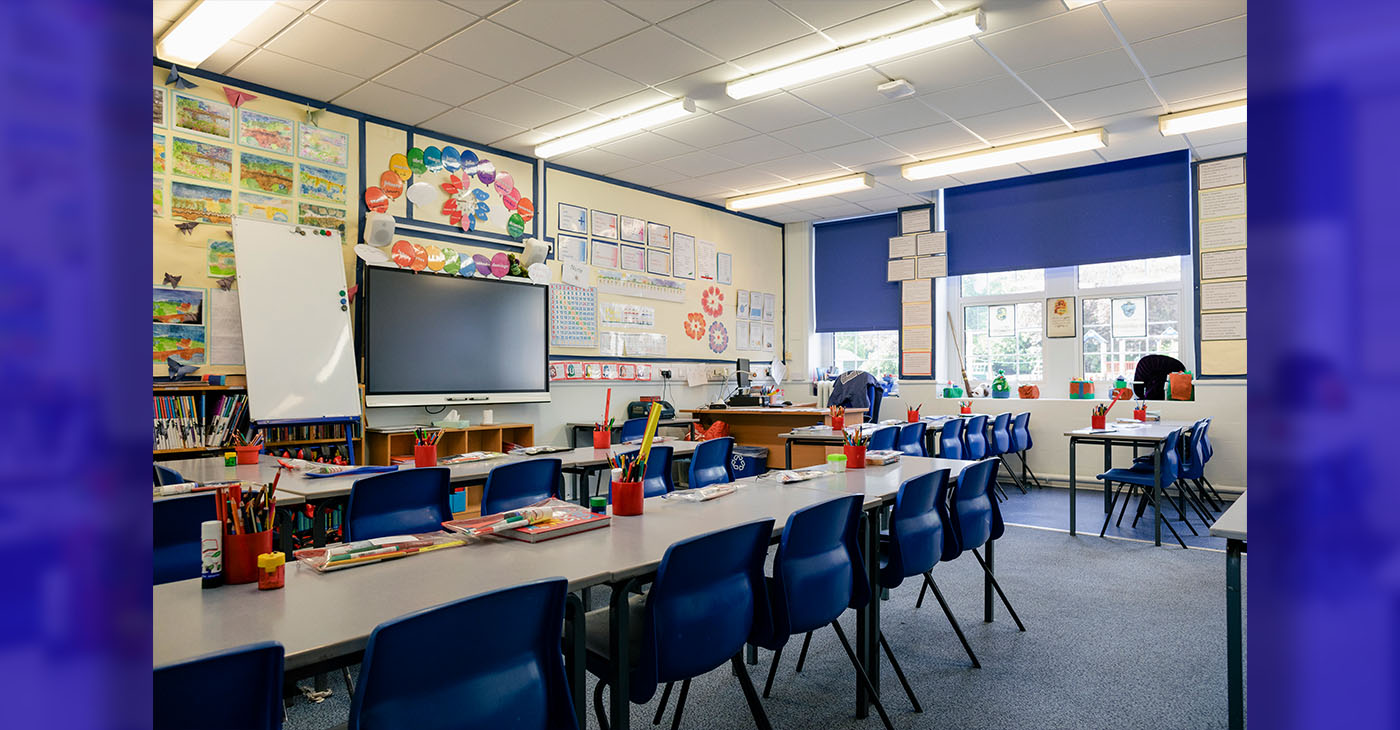
By April Ryan
There are plenty of negative reactions to President Donald Trump’s latest Executive Order abolishing the Department of Education. As Democrats call yesterday’s action performative, it would take an act of Congress for the Education Department to close permanently. “This blatantly unconstitutional executive order is just another piece of evidence that Trump has absolutely no respect for the Constitution,” said Rep. Maxine Waters (D-CA) who is the ranking member on the House Financial Services Committee. “By dismantling ED, President Trump is implementing his own philosophy on education, which can be summed up in his own words, ‘I love the poorly educated.’ I am adamantly opposed to this reckless action, said Rep. Bobby Scott who is the most senior Democrat on the House Education and Workforce Committee.
Morgan State University President Dr. David Wilson chimed in saying “I’m deeply concerned about efforts to shift federal oversight in education back to the states, particularly regarding equity, justice, and fairness. History has shown us what happens when states are left unchecked—Black and poor children are too often denied access to the high-quality education they deserve. In 1979 then President Jimmy Carter signed a law creating the Department of Education. Arne Duncan, former Obama Education Secretary, reminds us that both Democratic and Republican presidents have kept education a non-political issue until now. However, Duncan stressed Republican presidents have contributed greatly to moving education forward in this country.
During a CNN interview this week Duncan said during the Civil War President Abraham “Lincoln created the land grant system” for colleges like Tennessee State University. “President Ford brought in IDEA.” And “Nixon signed Pell Grants into law.” In 2001, the No Child Left Behind Act was signed into law by President George W. Bush which increased federal oversight of schools through standardized testing. Meanwhile, the new Education EO jeopardizes funding for students seeking higher education. Duncan states, PellGrants are in jeopardy after servicing “6.5 million people” giving them a chance to go to college. Wilson details, “that 40 percent of all college students rely on Pell Grants and student loans.”
Rep. Alma Adams (D-NC) says this Trump action “impacts students pursuing higher education and threatens 26 million students across the country, taking billions away from their educational futures. Meanwhile, During the president’s speech in the East Room of the White House Thursday, Trump criticized Baltimore City, and its math test scores with critical words. Governor West Moore, who is opposed to the EO action, said about dismantling the Department of Education, “Leadership means lifting people up, not punching them down.”
-

 #NNPA BlackPress4 weeks ago
#NNPA BlackPress4 weeks agoTarget Takes a Hit: $12.4 Billion Wiped Out as Boycotts Grow
-

 Activism3 weeks ago
Activism3 weeks agoUndocumented Workers Are Struggling to Feed Themselves. Slashed Budgets and New Immigration Policies Bring Fresh Challenges
-

 #NNPA BlackPress4 weeks ago
#NNPA BlackPress4 weeks agoBREAKING Groundbreaking Singer Angie Stone Dies in Car Accident at 63
-
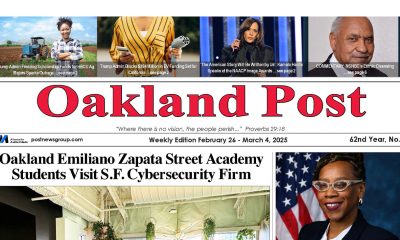
 Activism4 weeks ago
Activism4 weeks agoOakland Post: Week of February 26 – March 4, 2025
-

 Arts and Culture4 weeks ago
Arts and Culture4 weeks agoBeverly Lorraine Greene: A Pioneering Architect and Symbol of Possibility and Progress
-

 #NNPA BlackPress4 weeks ago
#NNPA BlackPress4 weeks agoNAACP Legend and Freedom Fighter Hazel Dukes Passes
-

 #NNPA BlackPress4 weeks ago
#NNPA BlackPress4 weeks agoTrump Kicks the Ukrainian President Out of the White House
-

 #NNPA BlackPress4 weeks ago
#NNPA BlackPress4 weeks agoApple Shareholders Reject Effort to Dismantle DEI Initiatives, Approve $500 Billion U.S. Investment Plan




